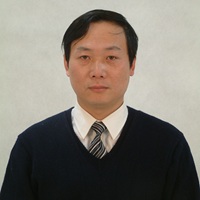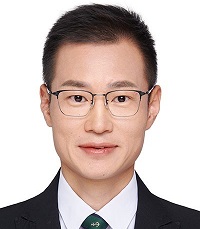Keynote Speakers
|
Fellow of IEEE Jiankun Hu is an IEEE Fellow, and a full professor of Cyber Security at the School of Engineering and Information Technology, the University of New South Wales at the Australian Defence Force Academy (UNSW@ADFA), Australia. His major research interest is in computer networking and computer security, especially biometric security. He has been awarded ten Australia Research Council Grants. He served as Security Symposium Co-Chair for IEEE GLOBECOM ’08 and IEEE ICC ’09. He was Program Co-Chair of the 2008 International Symposium on Computer Science and its Applications. He is serving as an Associate Editor of the following journals: Journal of Security and Communication Networks, Wiley; IEEE TIFS (Senior Area Editor); KSII TIIS (Area Editor); IET CPS; IEEE OJCS; and Wiley S&P. He received a Bachelor’s degree in industrial automation in 1983 from Hunan University, PR China, a PhD degree in engineering in 1993 from the Harbin Institute of Technology, PR China, and a Master’s degree for research in computer science and software engineering from Monash University, Australia, in 2000. In 1995 he completed his postdoctoral fellow work in the Department of Electrical and Electronic Engineering, Harbin Shipbuilding College, PR China. He was a research fellow of the Alexander von Humboldt Foundation in the Department of Electrical and Electronic Engineering, Ruhr University, Germany, during 1995–1997. He worked as a research fellow in the Department of Electrical and Electronic Engineering, Delft University of Technology, the Netherlands, in 1997. Before he moved to RMIT University Australia, he was a research fellow in the Department of Electrical and Electronic Engineering, University of Melbourne, Australia. |
|
Fellow of IEEE Guan Gui (Fellow, IEEE) received his Ph.D. degree from the University of Electronic Science and Technology of China, Chengdu, China, in 2012. From 2009 to 2014, he was a research assistant and postdoctoral research fellow at Tohoku University, Japan. From 2014 to 2015, he was an Assistant Professor at Akita Prefectural University in Japan. Since 2015, he has been a Professor at Nanjing University of Posts and Telecommunications, China. His research focuses on intelligent sensing and recognition, intelligent signal processing, and physical layer security. Dr. Gui has authored over 200 IEEE journal and conference papers and received several best paper awards, including at ICC 2017, ICC 2014, and VTC 2014-Spring. He is a fellow of IEEE, IET, and AAIA, and he is recognized for his contributions to intelligent signal analysis and wireless resource optimization. Among his accolades, he received the IEEE Communications Society Heinrich Hertz Award in 2021 and was named a Clarivate Analytics Highly Cited Researcher from 2021 to 2024. Dr. Gui is a Distinguished Lecturer for the IEEE Vehicular Technology Society (VTS) and the IEEE Communications Society (ComSoc). He is an editorial board member for several leading journals, including the IEEE Transactions on Information Forensics and Security, IEEE Internet of Things Journal, and IEEE Transactions on Vehicular Technology. Additionally, he serves as the Editor-in-Chief of KSII Transactions on Internet and Information Systems. He has also held prominent roles in international conferences, such as Executive Chair of IEEE ICCT 2023, Executive Chair of VTC 2021-Fall, and Vice Chair of WCNC 2021. |

